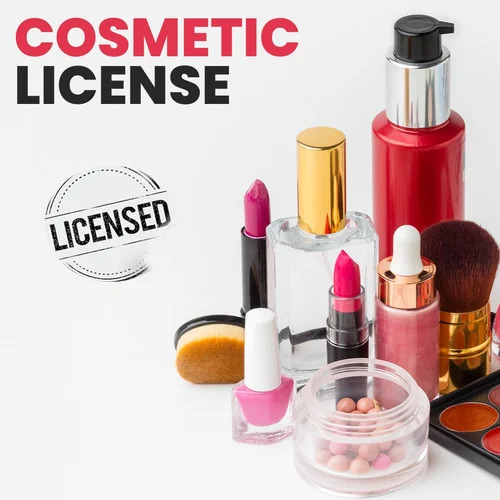
Introduction
Are you an aspiring entrepreneur looking to venture into the booming cosmetics industry? Or perhaps you’re an existing cosmetics business owner in need of guidance on renewing your cosmetic license. Whether you’re a newcomer or a seasoned professional, understanding the intricacies of cosmetic license registration is crucial for a successful journey in the cosmetics business.
In this blog, we’ll explore the key aspects of cosmetic license registration, including the different types of licenses, the registration process, renewal requirements, and the importance of having a cosmetic license certificate. Let’s delve into the world of cosmetics regulation and make your journey smoother and more compliant.
Understanding Cosmetic License Registration
What is a Cosmetic License?
A cosmetic license, often referred to as a “license for cosmetics” or “cosmetic business license,” is an official authorization issued by government regulatory bodies to individuals or companies involved in the production, distribution, and sale of cosmetic products. This license ensures that cosmetic products meet specific safety and quality standards, protecting consumers from potential harm.
The Importance of Cosmetic License Registration
- Product Safety: Cosmetic licenses are designed to ensure that cosmetic products do not pose risks to consumers’ health. They require manufacturers to follow stringent safety and quality standards during the production process.
- Regulatory Compliance: Compliance with regulatory requirements is mandatory for all cosmetics businesses. Holding a valid cosmetic license demonstrates your commitment to following industry regulations.
- Consumer Confidence: A cosmetic license provides a sense of trust and reliability to consumers. They are more likely to purchase products from businesses that have obtained the necessary licenses.
- Legal Protection: Having a cosmetic license offers legal protection in case of disputes or recalls, demonstrating that you have adhered to established guidelines and standards.
Types of Cosmetic Licenses
- Cosmetic License: This is the primary license you’ll need to operate a cosmetics business. It authorizes you to manufacture, distribute, or sell cosmetics products within a specific jurisdiction.
- Cosmetic Drug License: If your cosmetics products contain active ingredients with medicinal properties or make therapeutic claims, you may require a cosmetic drug license. These products are considered a crossover between cosmetics and pharmaceuticals and must meet more stringent regulatory requirements.
Cosmetic License Registration Process
- Research and Documentation: Before applying for a cosmetic license, gather all necessary documents, including the product formulation, safety data, and labels. Ensure your cosmetics comply with the local regulations regarding ingredients, labeling, and packaging.
- Choose Your Jurisdiction: Different regions and countries have varying cosmetic regulations. Research and decide where you want to register your cosmetics business and obtain the appropriate license.
- Application Submission: Submit a comprehensive application to the regulatory authority in your chosen jurisdiction. This application typically includes details about your business, product formulations, safety assessments, and labeling information.
- Inspections and Testing: Depending on the region, your business may undergo inspections, and product samples may be subjected to testing to ensure compliance with safety and quality standards.
- Approval and License Issuance: Once your application is reviewed and found to be in compliance with regulations, you’ll receive your cosmetic license. This license grants you the legal authority to manufacture, distribute, or sell cosmetics within the specified jurisdiction.
Cosmetic License Renewal
After obtaining your initial cosmetic license, you must be vigilant about renewing your Cosmetic License Renewal regularly to maintain your business’s legality. Renewal requirements can vary by jurisdiction but often include:
- Regular Renewal Intervals: Most licenses need to be renewed annually or at specific intervals set by the regulatory authority.
- Documentation Updates: Provide updated product formulations, safety data, and any changes to your business structure.
- Fee Payments: Pay the necessary renewal fees, which can vary based on your jurisdiction and the type of license you hold.
- Compliance Assurance: Ensure that your cosmetic products continue to meet the regulatory standards, including ingredient safety and labeling requirements.
Cosmetic License Certificate
A cosmetic license certificate is a formal document issued by the regulatory authority, confirming your compliance with the relevant cosmetic regulations. This certificate is crucial for your business, as it:
- Demonstrates Legitimacy: Having a valid cosmetic license certificate proves that your business operates within the legal framework, enhancing your credibility in the market.
- Eases Market Access: Many retailers and distributors require suppliers to provide proof of a valid cosmetic license certificate before they agree to stock or distribute products.
- Consumer Trust: It instills confidence in consumers, assuring them that the cosmetics they purchase are safe and compliant with industry standards.
Cosmetic Business License
While the focus of this blog has been on cosmetic product licenses, it’s essential to note that you may also need a general business license or permits specific to your locality or industry. These licenses are separate from cosmetic licenses and ensure your business operates legally on a broader scale.
Conclusion
Navigating the world of cosmetic license registration is a crucial step in establishing and maintaining a successful cosmetics business. Understanding the different types of licenses, the registration process, renewal requirements, and the significance of a cosmetic license certificate will help you ensure compliance, gain consumer trust, and thrive in this competitive industry. Remember, regulatory requirements can change, so staying informed and adaptable is key to your cosmetics business’s long-term success.
